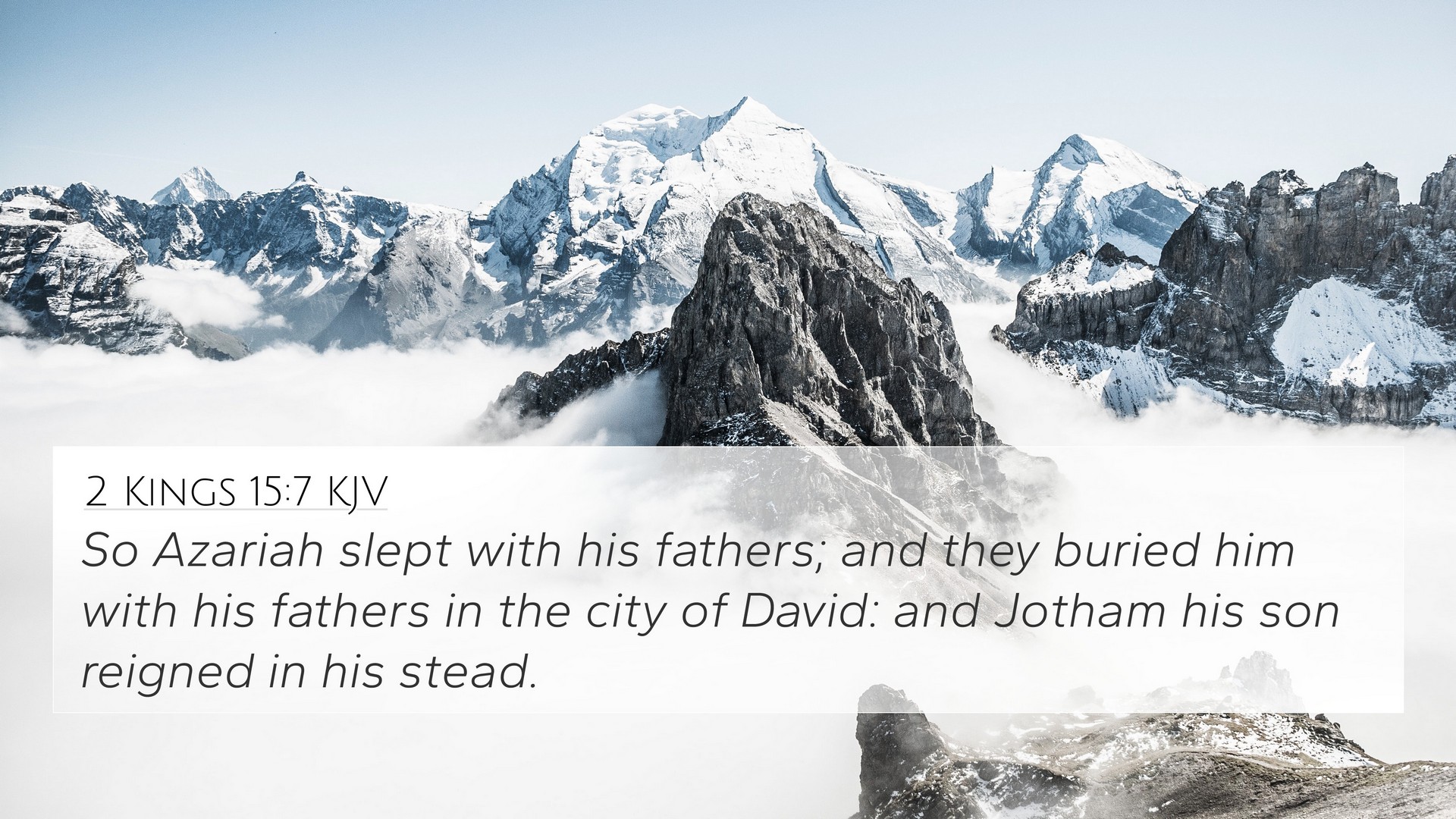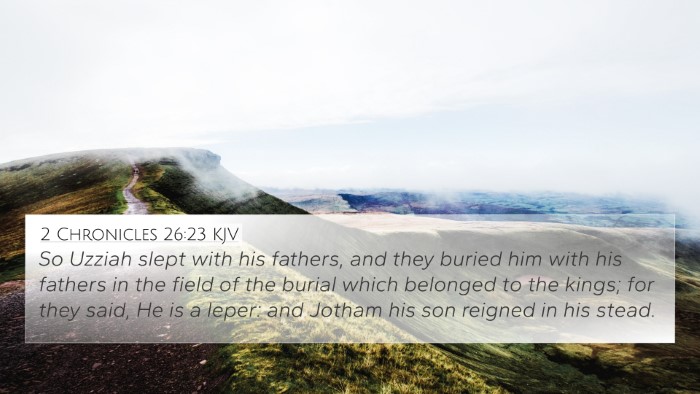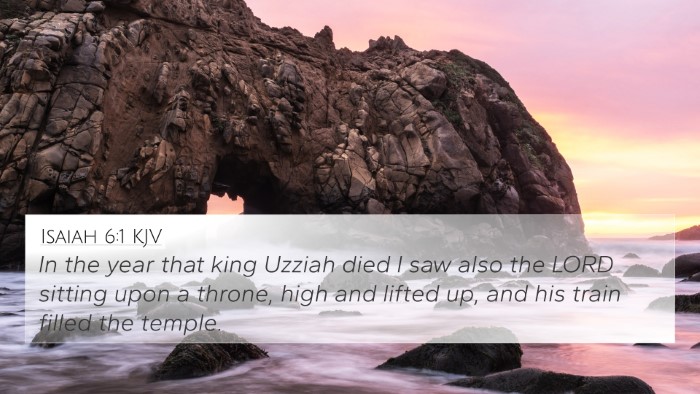Understanding 2 Kings 15:7
Verse: "And Azariah slept with his fathers; and they buried him with his fathers in the city of David: and Jotham his son reigned in his stead."
Summary of Meaning
2 Kings 15:7 provides a poignant snapshot of a transitional moment in Israel's monarchy. The verse marks the death of King Azariah (also known as Uzziah) and the subsequent ascendance of his son Jotham to the throne. This moment is important for several reasons:
- Historical Context: Azariah's reign was significant for various reasons including economic prosperity and military conflicts, but his later years were marred by his leprosy. This led to Jotham ruling in place of his father for some time, highlighting themes of delegation and succession.
- Spiritual Reflections: The verse indicates the end of a reign and the continuation of God's plan through the Davidic line, illuminating God's sovereign control over the history of Israel.
- Thematic Resonance: The mention of burial "with his fathers" emphasizes the idea of legacy and continuity within the kingdom of Judah, as well as the common historical practice that recognizes the importance of ancestry.
Commentary Insights
This verse has been elaborated upon by several biblical commentators:
- Matthew Henry: He reflects on the nature of Azariah's reign ending with death. Azariah's struggles due to leprosy are poignant reminders of mortality and God's judgment, and Henry underscores Jotham's character and potential for leadership.
- Albert Barnes: Barnes notes the significance of succession in the monarchic history of Israel, acknowledging the way in which leadership transitions shape the spiritual and political landscape.
- Adam Clarke: Clarke elaborates on the historical and geographical significance of the burial in the city of David, indicating its importance in the covenantal promise to David's line, which connects the themes of kingship and divine promise.
Cross-References and Connections
To deepen understanding of 2 Kings 15:7, consider these related scripture passages:
- 2 Chronicles 26:1-23: This passage details Azariah's reign, his accomplishments, and eventual leprosy, enriching our understanding of his leadership.
- Matthew 1:9-10: This genealogy includes Jotham and connects the Davidic lineage, affirming God's covenant promises.
- 2 Kings 14:29: Discusses the context for Azariah's reign within the Assyrian crisis, linking external pressures to internal leadership dynamics.
- Isaiah 1:1: Provides a contextual background to the socio-political climate in which Jotham later reigns, showing the prophetic voice that calls God's people back to faithfulness.
- 2 Samuel 7:12-16: Explicitly mentions God's promise to David of an everlasting dynasty, underlining the significance of Jotham's succession.
- 1 Kings 15:1-7: Discusses the reign of Abijam, providing insight into the continual lineage of kings and their varying faithfulness.
- Micah 5:2: In referencing Bethlehem and linking it back to the Davidic lineage, this prophecy is a testament to the enduring nature of God's promises.
Conclusion
This exploration of 2 Kings 15:7 through public domain commentaries illustrates how individual verses interconnect to form a more comprehensive understanding of God's narrative. The significance of Azariah's closing chapter and Jotham's beginning highlights God's sovereignty over Israel’s history, and how themes of legacy, leadership, and divine promise are interwoven throughout the Scriptures.
Tools for Bible Cross-Referencing
For those seeking to dive deeper into the connections between Bible verses, consider employing:
- Bible Concordance: A helpful tool for tracking keywords and finding related verses.
- Bible Cross-Reference Guide: An invaluable resource that helps in locating verses that correspond thematically.
- Bible Chain References: Explore themes or concepts throughout Scripture effectively.
- Comprehensive Bible Cross-Reference Materials: Seek materials that provide extensive cross-referencing options for study.
With these tools, understanding inter-Biblical dialogue becomes more accessible, allowing for a rich exploration of faith themes across both the Old and New Testaments.




